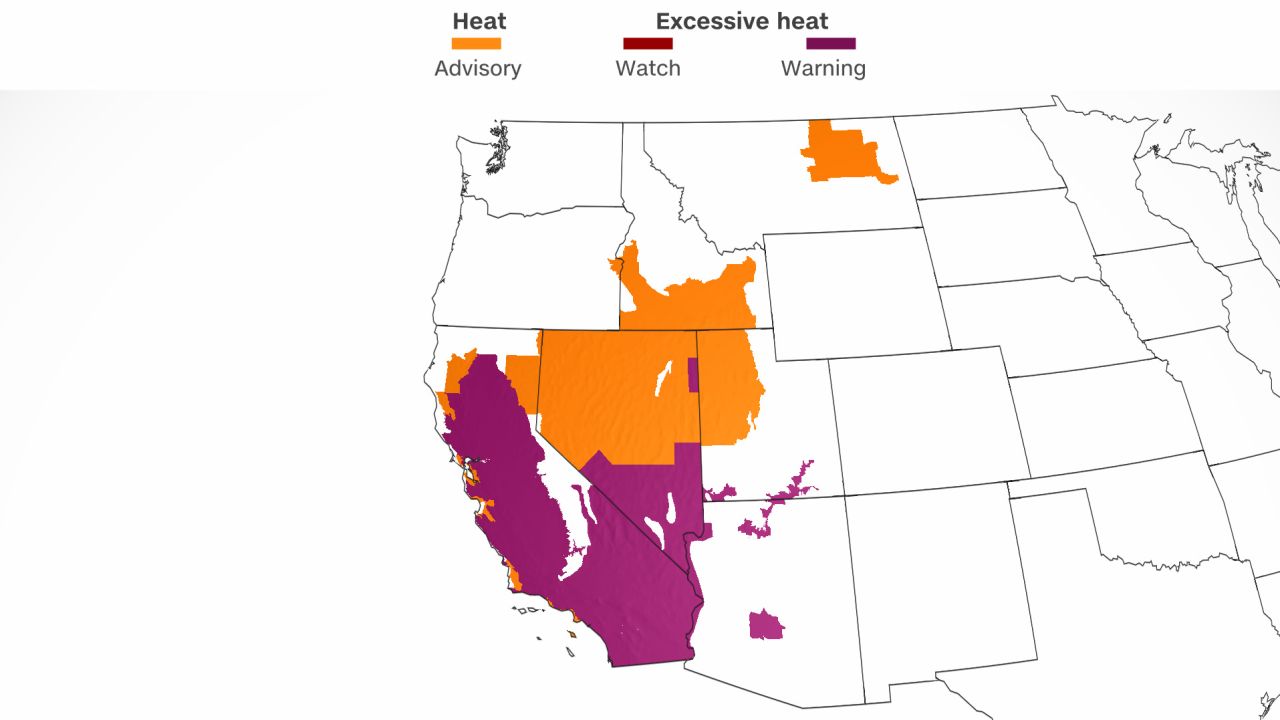Another heat wave descending on California and other parts of the western U.S. is expected to shatter temperature records, strain the power grid and threaten millions of people’s health. On Friday, temperatures were already approaching the triple digits across much of the region, and weather officials said people should prepare for it to get even hotter over the weekend. The weather will rival the heat waves that boiled the West and Pacific Northwest just a few weeks ago, the latter of which killed nearly 200 people. Numerous daily high-temperature records could be in jeopardy of being broken, particularly in California and Nevada. Highs could approach 115-120 degrees for the lower elevations of Arizona and eastern California this weekend!” the National Weather Service’s Weather Prediction Center warned in its Friday forecast.
California’s Death Valley may reach a sizzling 130 degrees on Sunday. That’s dangerously close to the hottest temperature ever recorded on Earth: 134 degrees in that same valley in 1913. Meanwhile, Las Vegas might topple its all-time heat record of 117 degrees this weekend. Nearly the entire state of California is under an Excessive Heat Warning, the NWS’s most severe temperature category. That means there’s a “very high risk” of dangerous heat impacts for everybody in that area, “with little to no relief overnight.” Large swaths of Nevada and Utah and Arizona, Idaho, and Oregon are under the same heat warning.
California’s power grid manager, the California Independent System Operator, urges residents to reduce their energy consumption on Friday. From 4 p.m. through 9 p.m., people are asked to set thermostats to 78 degrees or higher; avoid using major appliances such as dishwashers, washing machines and dryers; and turn off as many lights as possible.
Experts advise taking extra safety precautions when temperatures soar this high. People can protect themselves by wearing lightweight, light-colored, loose-fitting clothing; by generously applying sunscreen and wearing wide-brimmed hats when outside; drinking plenty of water to minimize dehydration risks; and seeking medical help when people show signs of heatstroke ― a deadly response to heat that presents with high body temperature, a firm or racing pulse, hot and dry skin, excessive sweating, headache, nausea, dizziness, confusion, and loss of consciousness.
